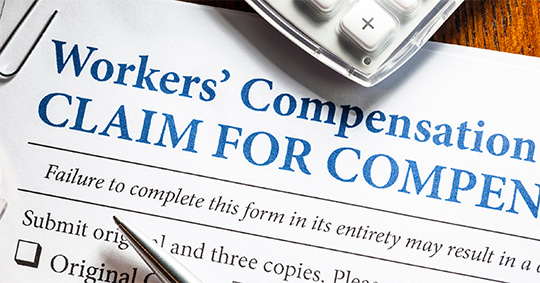Florida Businesses To Get Worker’s Comp Rate Cut
November 2, 2017
State Insurance Commissioner David Altmaier has ordered a 9.8 percent decrease in the premiums businesses pay for workers’ compensation insurance beginning next year.
He also ordered the National Council on Compensation Insurance to include in all future recommended rate filings a “quantitative analysis” of the impact that eliminating attorney-fee caps have had on the workers’ compensation system. NCCI is an organization that files recommended rates on behalf of insurance companies.
In a final order Tuesday, Altmaier rejected a recommended 9.6 percent rate reduction filed by NCCI and ordered it to file by Nov. 7 a slightly larger 9.8 percent reduction.
The Office of Insurance Regulation said a 2 percent profit and contingencies provision in the NCCI filing was “excessive” and ordered it lowered to 1.85 percent.
In a statement, NCCI said it’s in the process of reviewing its filing to comply with the order by Nov. 7.
Workers’ compensation is a no-fault system meant to protect workers and employers. It is supposed to provide workers who are injured on the job access to medical benefits they need to be made whole. Those who are injured for at least eight days also are entitled to indemnity benefits, or lost wages. In exchange for providing those benefits, employers generally cannot be sued in court for causing injuries.
Florida businesses paid nearly $3.8 billion in workers’ compensation premiums in 2016, up from about $2.8 billion in 2012. The costs for the mandatory coverage are the 33rd highest in the nation, according to NCCI.
Bill Herrle, executive director of the National Federation of Independent Business-Florida, said small-business owners will benefit under Altmaier’s order.
“Any rate reduction is welcomed news,” Herrle said. “We have the confidence in the insurance commissioner that the rate reduction is merited.”
Altmaier’s near 10-percent reduction is more conservative than what the group Florida Workers’ Advocates proposed at a public hearing last month. Stephen Alexander, an actuary for the association, testified that rates should be reduced by an average 15.4 percent.
Nevertheless, the reduction in 2018 rates is in stark contrast to a 14.5 percent increase that was approved last year. That hike went into effect in December 2016 and was filed to reflect two Florida Supreme Court rulings as well as increases in the rates paid to health providers who treat injured workers.
The 2016 filing, NCCI said, was a “law only” filing, reflecting changes to the system. The 2017 filing was based on experiences for policy years 2014 and 2015 as they were valued at year-end 2016.
In Tuesday’s order, the Office of Insurance Regulation directed NCCI to include in its future recommended rate filings a detailed analysis of the impact of Castellanos v. Next Door Company, a 2016 Florida Supreme Court ruling that struck down caps on fees for attorneys who represent injured workers.
“The analysis may include alternative data sources and should examine changes to the Florida workers’ compensation market that are attributed to or observed as a result of the recent court decision,” the order said. “These changes include, but are not limited to, reopening of claims from older years, changes in reserves or payment patterns, changes to claim closures or settlement rates, changes to claim frequency and severities, increasing attorney involvement and fees paid to attorneys.”
Florida Workers’ Advocates President Mark Touby in a statement said he was pleased that Altmaier recognized deficiencies in the existing rate process.
“It is tremendously troubling that NCCI has admitted that last year’s 14.5 percent rate increase was not based on any relevant data, but was instead based on market projections. The fact that we are now facing a significant rate reduction raises the question of whether last year’s hasty rate increase was justified — or alternatively, whether it was an avenue to over-collect premiums from Florida businesses based upon NCCI’s myth that there was an unfunded liability. Either way, this process is in serious need of reform, and we are pleased that Commissioner Altmaier has recognized the deficiencies in the existing NCCI process,” the statement said.
NFIB’s Herrle is confident that NCCI”s analysis will show the elimination of the fee caps will increase attorney involvement in the system and, therefore, drive up rates.
“We’re OK waiting to get our I-told-you-so’s on that one,” he said. “We believe that unrestricted attorneys’ fees will eventually catch up with us.”
by Christine Sexton, The News Service of Florida




Comments